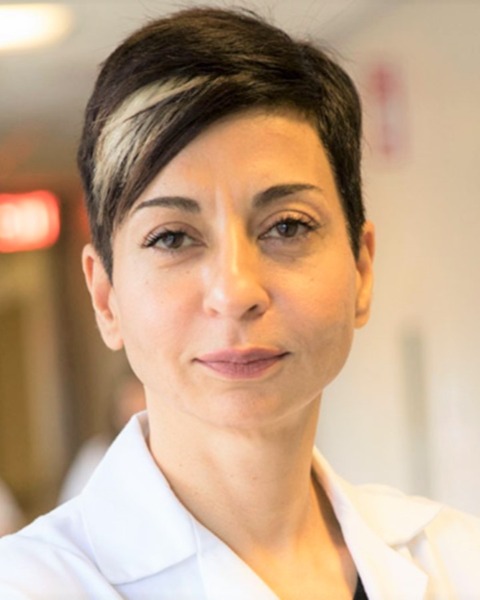Postoperative Critical Care of the First Human Long Segment Orthotopic Tracheal Transplant
-

-
JO
John Oropello, MD, FCCM
Professor of Surgery and Medicine, Institute of Critical Care Medicine
Icahn School of Medicine at Mount Sinai, United StatesDisclosure information not submitted.
-
JW
-
EM
Edwin Mo, MD
Assistant Professor, Emergency Medicine, Critical Care Medicine
Icahn School of Medicine at Mount Sinai, United StatesDisclosure information not submitted.
-

Roopa Kohli-Seth, MD, FCCP, FACP
Director of the Institute for Critical Care Medicine
Mount Sinai Health System
New York, NYDisclosure information not submitted.
First Author(s)
Co-Author(s)
Title: Postoperative Critical Care of the First Human Long Segment Orthotopic Tracheal Transplant
Case Report Body:
Introduction: Airway reconstruction in patients with extensive tracheal defects can be a daunting but life-altering endeavor. Traditionally, airway defects that are less than 5 cm can be bridged with end-to-end anastomoses, while defects that are longer than 5 cm require more extensive reconstruction. Allograft procedures using decellularized and polymeric constructs in human subjects have remained unsuccessful due to lack of mucociliary airway clearance and inadequate blood supply to the transplanted tracheal graft. A first of its kind orthotopic tracheal transplant was performed at Mount Sinai Hospital in a patient with long segment tracheal stenosis using a novel surgical approach.1 Postoperative critical care management of the patient was vital in ensuring successful integration of the tracheal allograft and maintaining patency of the airway.
Description: Long-standing asthma exacerbations requiring prolonged intubation, resulted in long segment tracheal stenosis with chronic tracheostomy dependence despite stenting and dilatation procedures. Donor trachea, thyroid and parathyroid glands were transplanted orthotopically into the recipient en masse with its complex network of blood vessels. She was initially managed with deep sedation, mechanically ventilated via anode endotracheal tube that was passed through the superior tracheal anastomosis. High dose immunosuppression was maintained. Thyroid function remained normal, but hypercalcemia, refractory to calciuresis developed. Intravenous pamidronate was given with improvement. Serial surveillance bronchoscopies were performed for graft assessment, pulmonary toilet and biopsy. Cytopathology demonstrated successful integration of the donor trachea into the recipient without features of acute graft rejection.
Discussion: The potential for tracheal allotransplantation bodes well for patients with long segment tracheal defects with chronic tracheostomy dependence due to no destination therapy in terms of airway reconstruction. Knowledge of the postoperative management of orthotopic tracheal transplant will be of importance for intensivists if this procedure becomes more prevalent.
Genden EM, Miles BA, Harkin TJ, et al. Single-stage long-segment tracheal transplantation. Am J Transplant. 2021;10.1111/ajt.16752
